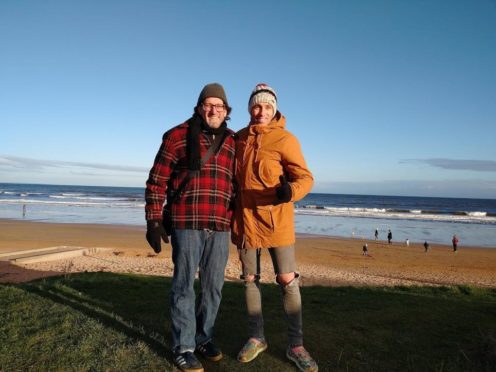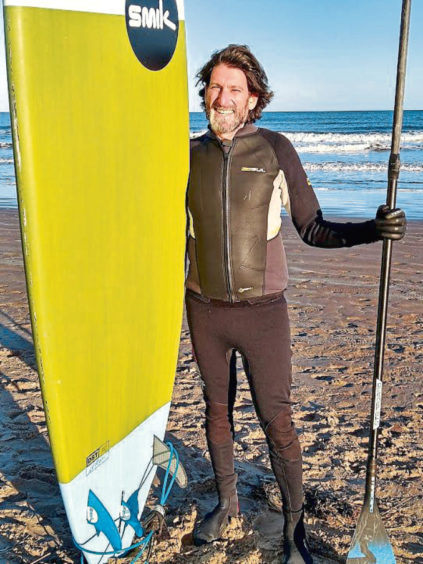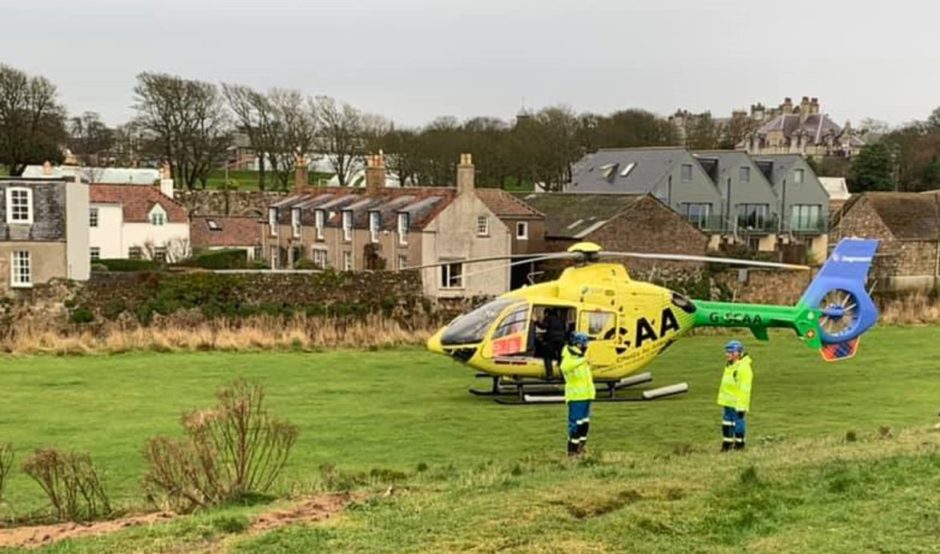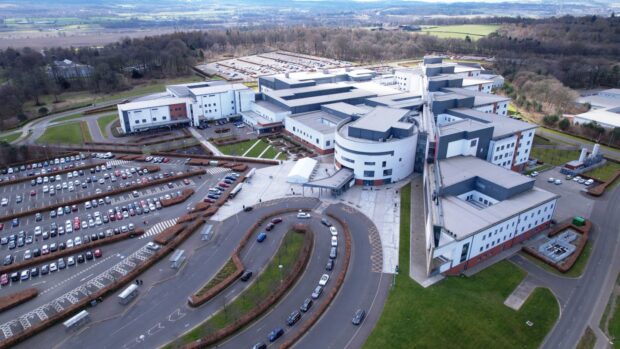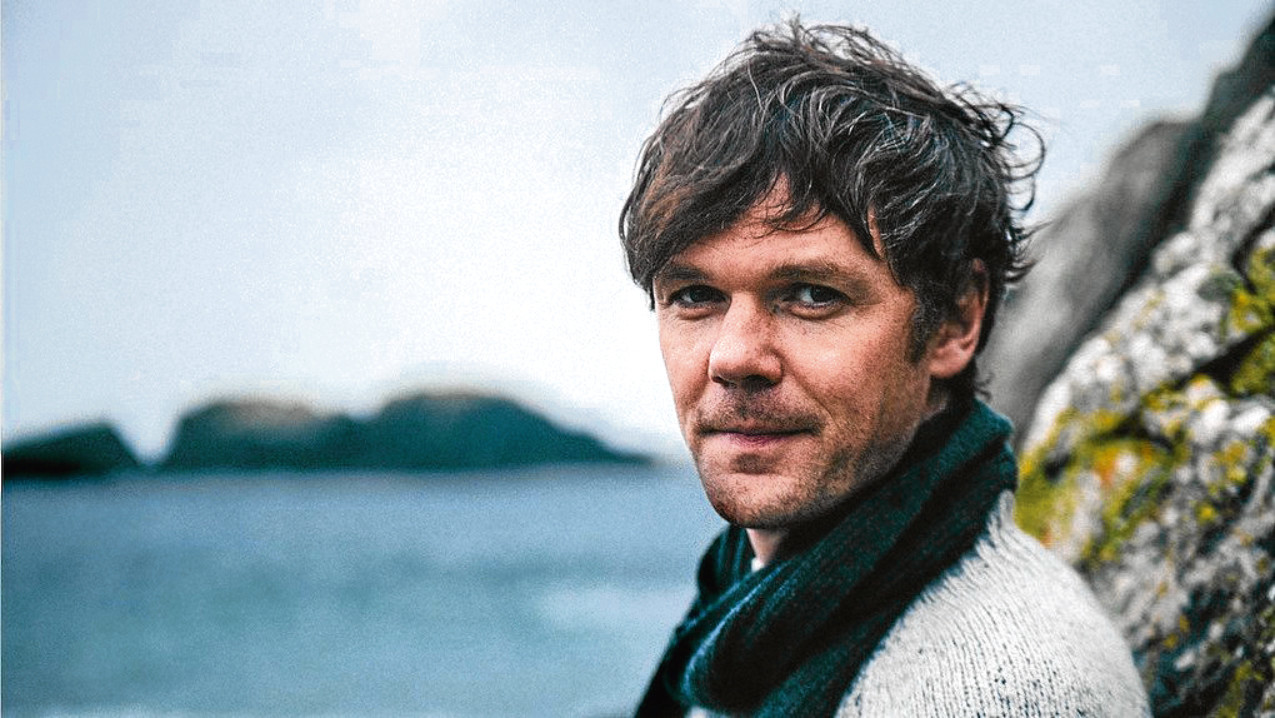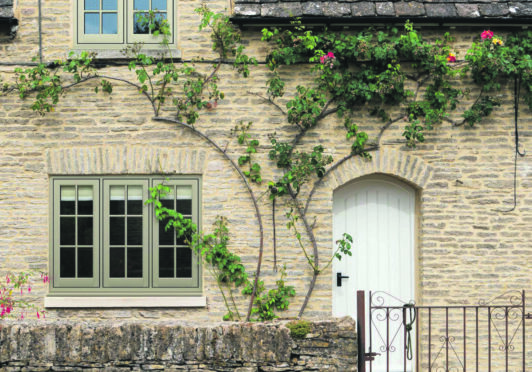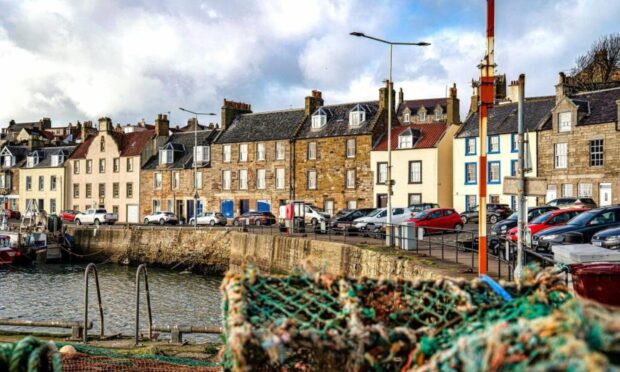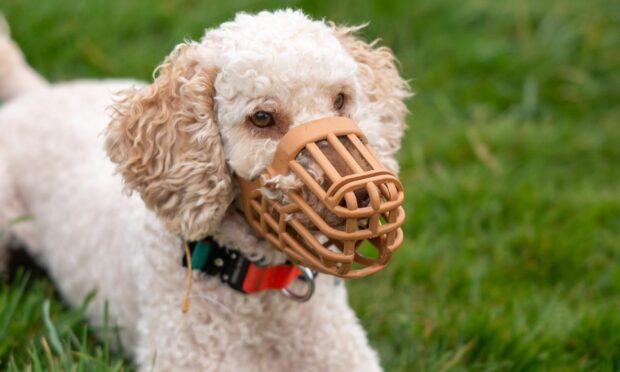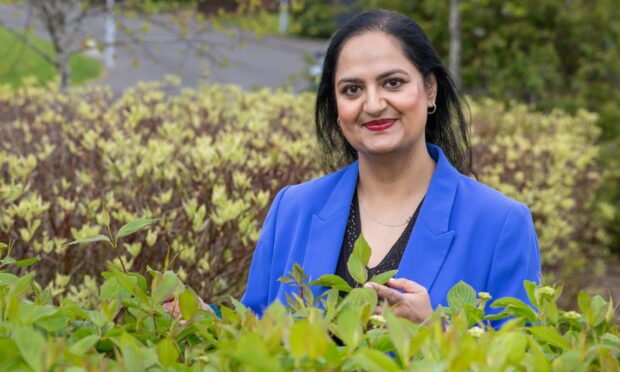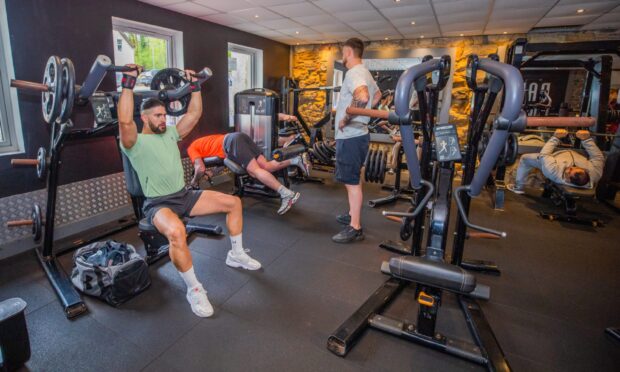Taking a snowy stroll in St Andrews, Bill Shackman looks to all intents and purposes like anyone else out enjoying the crisp winter weather. The affable north-American, who has lived in the university town with his wife Emily Michelson and their children for 11 years, is in fact filling me in on the details of his dramatic heart attack survival story, which took place just a few months previously.
On December 8 last year, Bill, 47, was enjoying the surf at East Sands when he collapsed on the beach. He doesn’t remember anything about what happened but has pieced the events together in retrospect. “I have no memory from the day; just a hazy recollection of the waves at West Sands looking too dangerous to enter.
“I am an experienced and cautious paddleboarder who usually surfs in smaller waves on West Sands. When the conditions get bigger, especially in winter, the waves have a much nicer shape at East Sands.
“In the week prior I had some incredible sessions so I know I was excited to see whether the morning would live up to the great surf forecast for that day. There were many other surfers at the beach that day expecting the same.”
“All I remember of what happened is a vague feeling of light-headedness. I have since heard from others what they remember. A friend reported seeing me surfing in big waves out past the pier at East Sands.
“Other surfers remember greeting me as I came out of the water. I looked fine. A group of students reported that I was standing on shore, smiling; watching other surfers catching waves. I said, ‘Hi.’ Apparently I looked like I might go in for more. It’s a good thing I didn’t. I collapsed on the shore a few seconds later. I must have known something was wrong in time to get out of the water,” he reflects.
In fact, Bill had suffered a heart attack brought on by an undiagnosed condition called hypertrophic cardiomyopathy (HCM), an inherited disease of the heart muscle, where the muscle wall of your heart becomes thickened.
Luckily for him, he was surrounded by people who knew exactly how to respond to the situation. “I know that I owe my life to those who gave me CPR and used the nearby defibrillator to revive me,” explains Bill. “Lewis Hamilton, a fellow surfer, passed by me just before I collapsed. Incredibly he had CPR training at work just the week before. Scott Mitchell, a surfer affectionately known as Mitch, also noticed me collapse.
“His training immediately kicked in and they immediately began chest compressions and mouth to mouth. Another surfer who is also a doctor, Oliver, noticed what was happening and helped as well. A surfer who used to work as a fireman knew where the public defibrillator was located. I am so grateful to the entire community of people who were concerned and aware enough to quickly offer what help they could.
“Bystanders provided scissors to remove my wetsuit, a towel to provide a makeshift pillow; an acquaintance helped the police identify me. I feel like the whole community came together to keep me alive and I will never be able to fully repay them.”
The air ambulance was called to assist but Bill’s condition was stabilised enough to allow him to be transferred to Ninewells Hospital by road. There, it was the next day before he became fully aware of what had happened and his initial confusion was most worrying for his wife, Emily. “I was in my office at work, and got a cryptic call from campus security asking to come see me,” she explains.
“Then I saw I’d missed a call from campus police. I knew immediately that Bill must have had a surfing incident, and I assumed the absolute worst. “The police were very kind and comforting. They stayed with me until the consultant was ready to meet me. I spent about 40 minutes with Bill. He didn’t have his short-term memory back, so we had the same conversation about 10 times. But it was a huge relief to see him, hear him, and touch him.”
Heart condition
Neither Bill nor Emily had heard of hypertrophic cardiomyopathy but the diagnosis made sense once it came. “I had known of a long list of aunts, uncles and cousins who had all suffered fatal heart attacks before their time. It is helpful to know which genetic condition explains this family trait.
“Before this event I thought I was perfectly healthy. I eat a vegetarian diet and regularly get five hours of cardiovascular exercise a week. I occasionally suffered shortness of breath but attributed that to simply getting older. But over time the wall in my heart separating the two lower ventricles was thickening and growing tougher, resulting in an obstruction that makes it difficult for my heart to pump enough blood. The condition is also associated with heart palpitations and irregular heartbeats that could also become dangerous.”
Although recovery from such a life-changing event will be a slow process, Bill is taking gentle exercise every day and has the added reassurance that he has been prescribed medication to keep his heart rate slow and steady. In the event that it does get dangerously high, “I have an implantable cardioverter defibrillator (ICD) in my chest, connected to my heart.
“This device can regulate my heartbeat if it becomes irregular, slow my heart beat if it goes too fast and defibrillate my heart if it stops altogether. I am very grateful for the care I received and the incredible team of doctors and nurses at the NHS.
“The initial soreness from the CPR and from the wound where the ICD was implanted have passed, though I still do not feel entirely at ease in my body. Lockdown has provided me with ample time to go for longer walks every day. I have ventured out further on my cycle a couple of times and even attempted a jog last week but seemed to have pulled a muscle. Like everything else, it’s two steps forward and one step back.”
Bill has also had the chance to met the people who stepped in to help when he collapsed. “I went to East Sands on Christmas Eve and met the crew of people who saved me. It was very emotional for me to be able to thank them, and I think it was quite a relief for them to see me doing well. Since I have no memory of the day it was very powerful to hear their accounts and begin to piece together a fuller picture of what happened. I feel like I will never be able to fully repay them.
“I hope that some day after lockdown I will at least be able to buy them all a pint so that we can all share our stories. I also hope to surf again one day and truly look forward to seeing them out on the water”
Life-saving skills
Scott ‘Mitch’ Mitchell, is one of those who stepped up to administer first aid to Bill. The Kirkcaldy-based surfer recalls that he saw someone lying on the sand. “At first nothing seemed untoward however, when I glanced back again I could tell from the nature of the way a few guys had gathered round him something was wrong.”
“At that point I immediately jumped down the wall and sprinted to Bill, I told a few friends in the car park to call an ambulance immediately which they did. Approaching Bill, his skin was blue and he was clearly unresponsive. Being such a massive day of surf a heart attack didn’t cross my mind, it seemed more likely he had perhaps swallowed water or been injured by his own board in the water and managed to get out before collapsing.”
Mitch checked Bill’s airway and then moved him up the beach with the help of other surfers “Myself and Lewis immediately began CPR. We were then aided by another individual who identified himself as a doctor.
“The community defibrillator (AED) which ultimately saved Bill’s life was fetched from the East Sands Car Park and we prepared him for the shock.”
Despite the first aid that he and others were performing and the presence of the AED, Mitch feared the worst for Bill. He had been unconscious and not breathing for over 10 minutes when the AED advised the administration of a shock. They worked for another five minutes before the ambulance crew arrived. “In my recollection Bill was starved of oxygen for possibly more than 15 minutes and I didn’t think we even had a slight chance of getting him back. Nonetheless, we tried our best.
“Once the ambulance left [to take Bill to hospital], I remember my feet suddenly going numb, I looked down and realised I was still in my socks as I had been getting into my wetsuit as this started.
“I didn’t then get in the water for hours, I knew I wasn’t in the correct head space,” he recalls. Things really hit home, however, when he was able to make contact with Bill’s wife. “I rang the hospital later that day to leave my details as at the time no one knew who Bill was and I needed to know how he was, that night his wife called me, it was a very emotional call for us both – it hit me when she said Bill had spoken with his kids, it hadn’t even crossed my mind if he was a family man with children.”
Although he was keen to meet Bill, he didn’t want to impose on his recovery and family time. “I met Bill on the same beach on Christmas Eve, I thought it would have been awkward as I’d imagined it in my head as you do but it really wasn’t, we sat by the warm fire pit of the Cheesy Toast Shack and just spoke, I got to know about Bill, about his passing for surfing, music and family, it was a really humbling moment.”
Since the incident, Mitch has shared his experience on social media with a focus on encouraging people to ask themselves whether they would know what to do in a similar situation and, if not, to embark on first aid training. “I was overwhelmed by the honesty and engagement – so many people told me that they had booked onto online courses, which I was so happy with.”
Like Bill and Emily, Mitch was impressed that the local surf community really came together to support the family. He has also been able to encourage University of St Andrews to fund first aid training for members of its Surf Club and the owners of the Cheesy Toast Shack have been prompted to providing training for their staff.
A time to reflect
It’s no surprise that coming so close to losing his life has led Bill to reflect on his life and relationships: “This experience has forced me to evaluate what gives my life purpose and meaning,” he says. “The prospect of nearly dying reveals the absurdity of judging a life in terms of aspirations and regrets. More important than what I have or have not done are the relationships that have given my life meaning.
“My absence would be meaningless to me but would leave a hole in the lives of those who love me. My children, my partner, my family, my friends are at the heart of who I am. Our relationships with others, even strangers, shape how we live our lives and what we get out of it. I find myself smiling and greeting passers-by while out walking, waving to people who make eye contact while driving by in cars.
“Every exchange with another person seems like a chance to connect, to give and to receive. Though I think I understood that lesson before, this near-death experience has impressed upon me the preciousness and fragility of each of those opportunities.”
Once Bill was discharged, Emily remembers that, “It was a difficult time for the first few days but once we knew Bill was likely to make a strong recovery, it was also kind of a beautiful moment. Our kids really rose to the occasion,” says says proudly, “dealing with it in their own way but also just helping each other (and me) out. And we received so much support and sympathy, of all different kinds.
“I knew St Andrews had a great community, but I still was overwhelmed by all the love. People gave us food and flowers and practical help for as long as we needed. When Bill first got home, he was very weak, tired, and uncomfortable, but in good spirits. The very best part of his return home was that Mitch had dropped off a giant card for him the night before, signed by all the regular surfers. He’d organised it all. It was such an amazing thing to do. Bill opened it right away and was incredibly moved. I think we all cried a bit,” she admits.
Bill’s support from the team at Ninewells didn’t stop when he left hospital. The family is regular touch with the specialist cardiac arrhythmia nurse and Emily says that, “I was really touched that she made a point to ask if I had any questions, as Bill’s partner. Friends and relatives continue to check in on us. As for our family, I think everybody has grown up a little, and has realised how precious our time together is. But sometimes someone is just grumpy (it’s lockdown) and normal – and that’s great too. I’m so glad we get to go back to normal and be the family we were before.”
Support Bill and Emily’s campaign to raise awareness of HCM here
For further information on Hypertrophic cardiomyopathy (HCM) including symptoms, diagnosis and treatment visit www.bhf.org.uk
The defibrillator at East Sands is managed by Operation Heart Start who also offer CPR training locally. www.heartstart.org
